Science Tokyo women make history with Snipe class win, overall 2nd place at Spring 2025 Kanto Intercollegiate Student Sailing Competition
The women of the Science Tokyo Sailing Team put in an outstanding performance at the Spring 2025 Kanto Intercollegiate Student Sailing Competition, held at Morito Coast in Hayama, Kanagawa Prefecture on May 10 and 11. The Institute’s sailors won the women’s Snipe class and finished seventh and eighth in the women’s 470 class, earning them second place in the overall rankings.
This was the first set of races for the Institute’s newly formed team following the merger between Tokyo Medical and Dental University (TMDU) and Tokyo Institute of Technology (Tokyo Tech), and the birth of Science Tokyo in October 2024. It was also the first Snipe class victory and overall second-place finish for the Institute’s women since the establishment of the Tokyo Tech Sailing Team — the predecessor of the Science Tokyo Sailing Team — in 1957.
Participating pairs
Snipe class — 1st place
- Yu Endo, 4th year, Life Science and Technology
- Haruna Suzuki, 3rd year, Transdisciplinary Science and Engineering
470 class — 7th place
- Yui Ito, 4th year, Life Science and Technology
- Manami Sasazawa, 4th year, Material Science and Engineering
470 class — 8th place
- Rina Yamada, 4th year, Life Science and Technology
- Kanna Goto, 4th year, Life Science and Technology
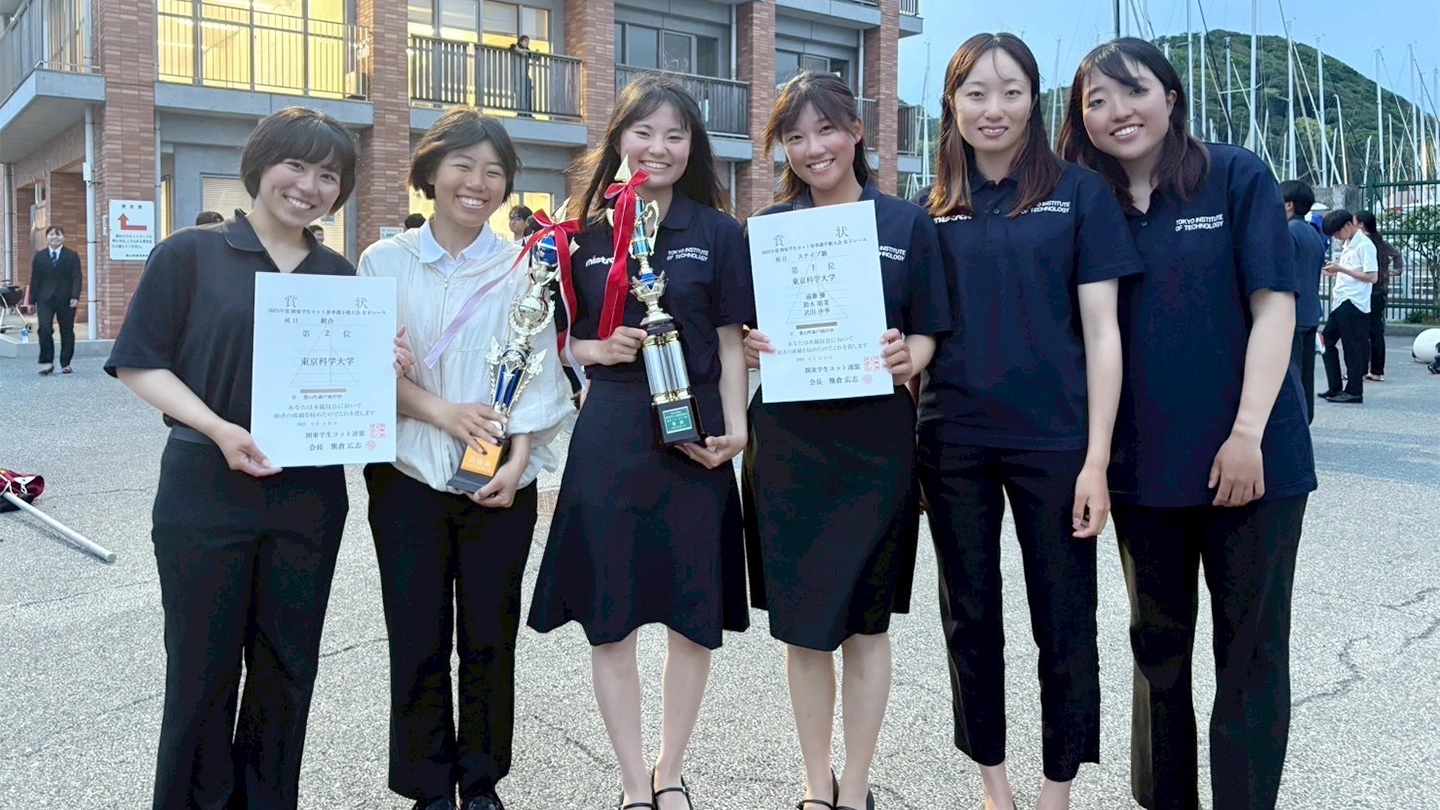
At the Kanto regional contest, each participating university sends out three pairs who compete for total points and an overall team ranking. This year, the women’s team decided to go with one pair in the Snipe class and two pairs in the 470 class.
As a result of their efforts, the Institute’s women have now qualified for the 33rd All Japan Women’s Student Sailing Championships, to be held from September 20 to 23. They will be competing in both classes of the competition for the third consecutive year.
Comments from participating sailors
Endo and Suzuki — Snipe class winners
- I am extremely pleased to have achieved overall second place in this contest, and would like to thank everyone for their support. This result means that we will participate in the All Japan Women’s Student Sailing Championships with all three boats, which is both a gratifying and sobering thought. Sailing, like academics, requires knowledge in many fields. Constant efforts and daily improvement are important to achieve results. We will continue to work hard and grow steadily so that we can produce good results in the future.
- We experienced a variety of conditions including light and strong winds, and I am happy that we were able to achieve consistent results in the Snipe class over the two days. I feel that sailing is somewhat similar to academics, where the basic skills cultivated in practice are applied to various situations. We will continue to work hard to apply this experience to our future sailing and research activities. We look forward to your continued support for the Science Tokyo Sailing Team.
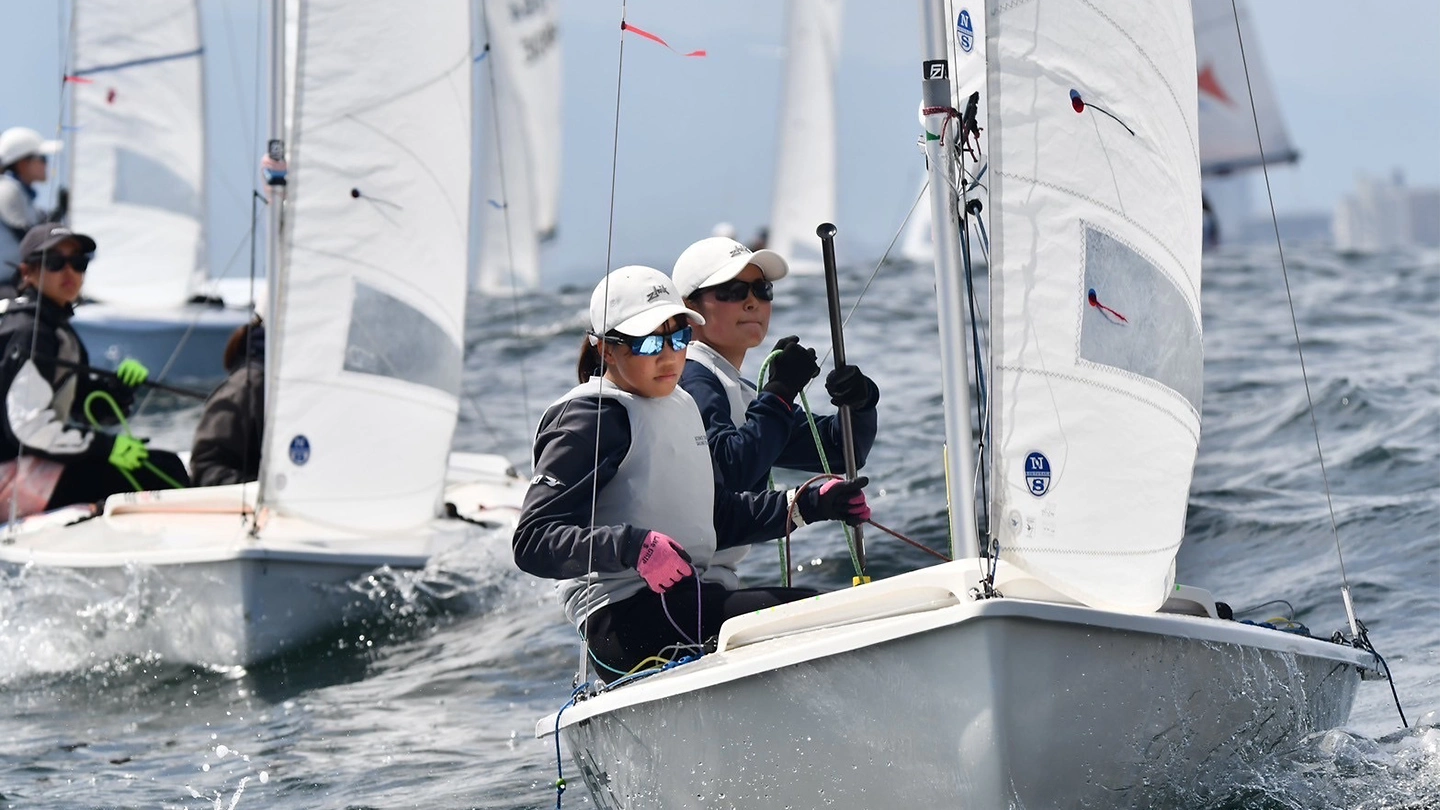
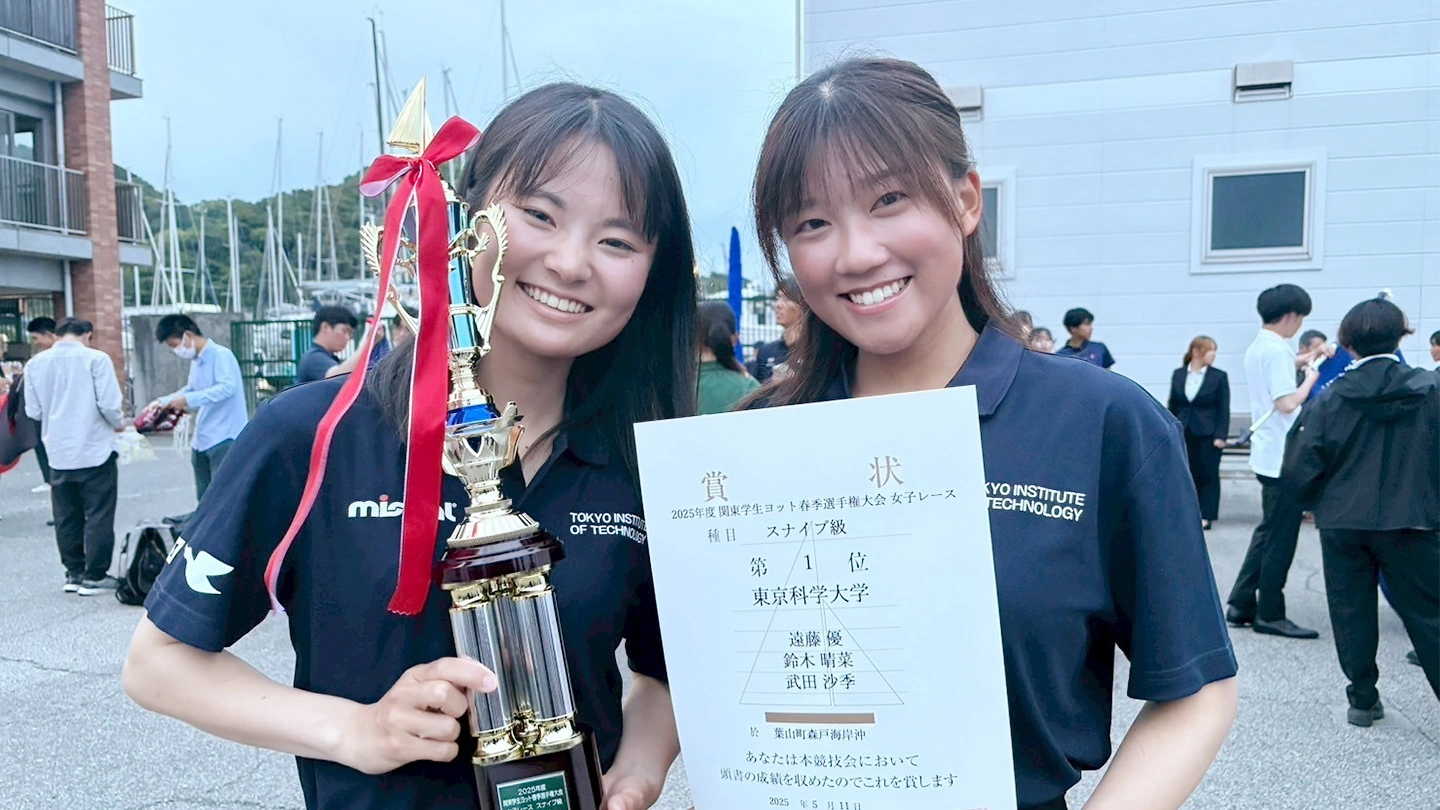
Ito and Sasazawa — 7th place in 470 class
Although the race was held in a range of conditions, including light to strong winds, we worked as a team and were able to qualify for the All Japan Women’s Student Sailing Championships again this year. This competition taught us that the analytical and decision-making skills that we have developed through academic work are also extremely important in sailing. We would like to thank all those who supported us, and will continue to practice hard.
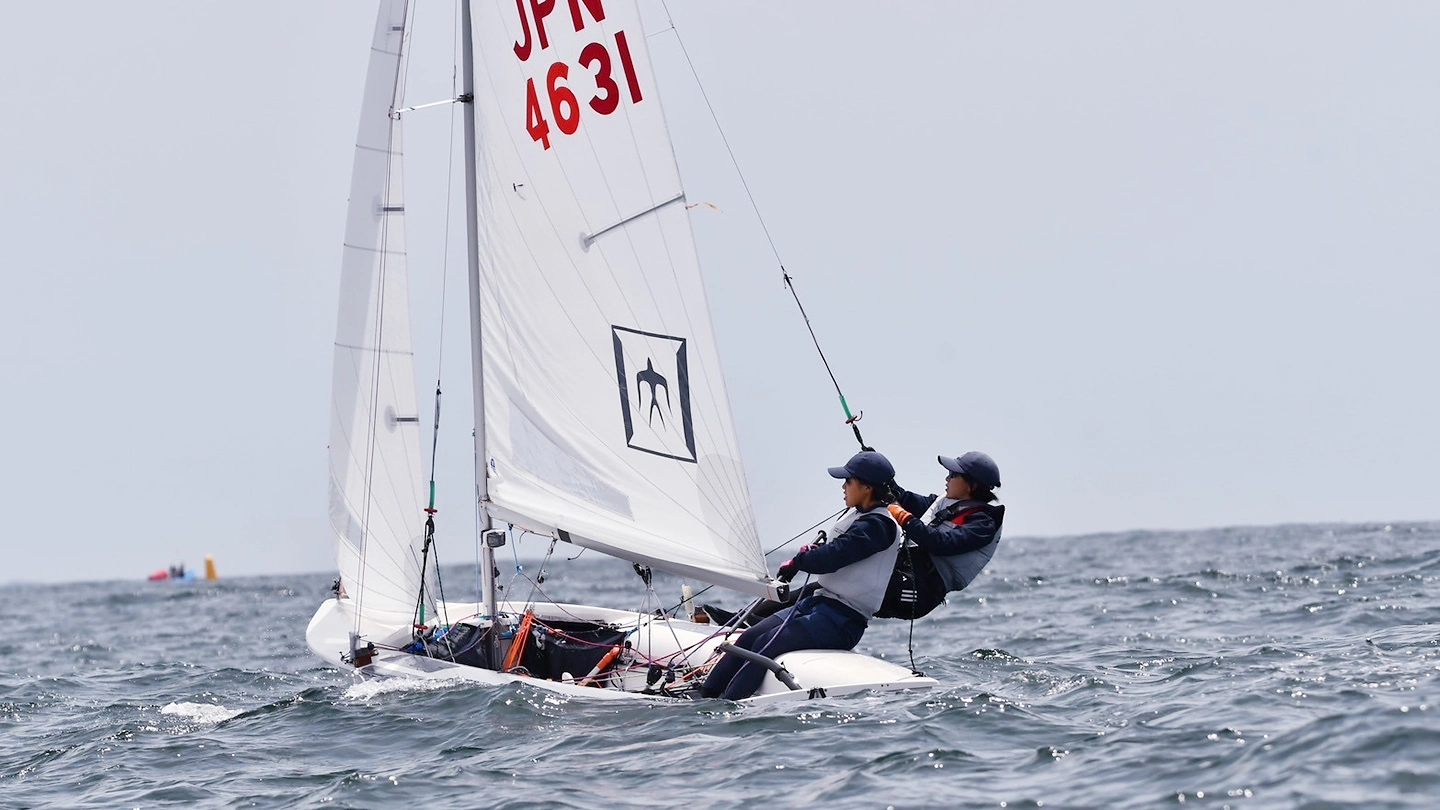
Yamada and Goto — 8th place in 470 class
This was the second time for us to compete as a pair in the women’s regional competition. We went into this race with the goal of finishing sixth in the 470 class. We fell one step short of our goal, which was a bit frustrating.
However, we will carefully reflect on our successes and shortcomings, keep them in mind in future practices, and use this frustration to strive for better results at the All Japan Women’s Student Sailing Championships and the women's intercollegiate competition in the fall. We are grateful for the environment in which we can devote ourselves to both academics and sailing, and we will continue to practice hard. Thank you for your support.
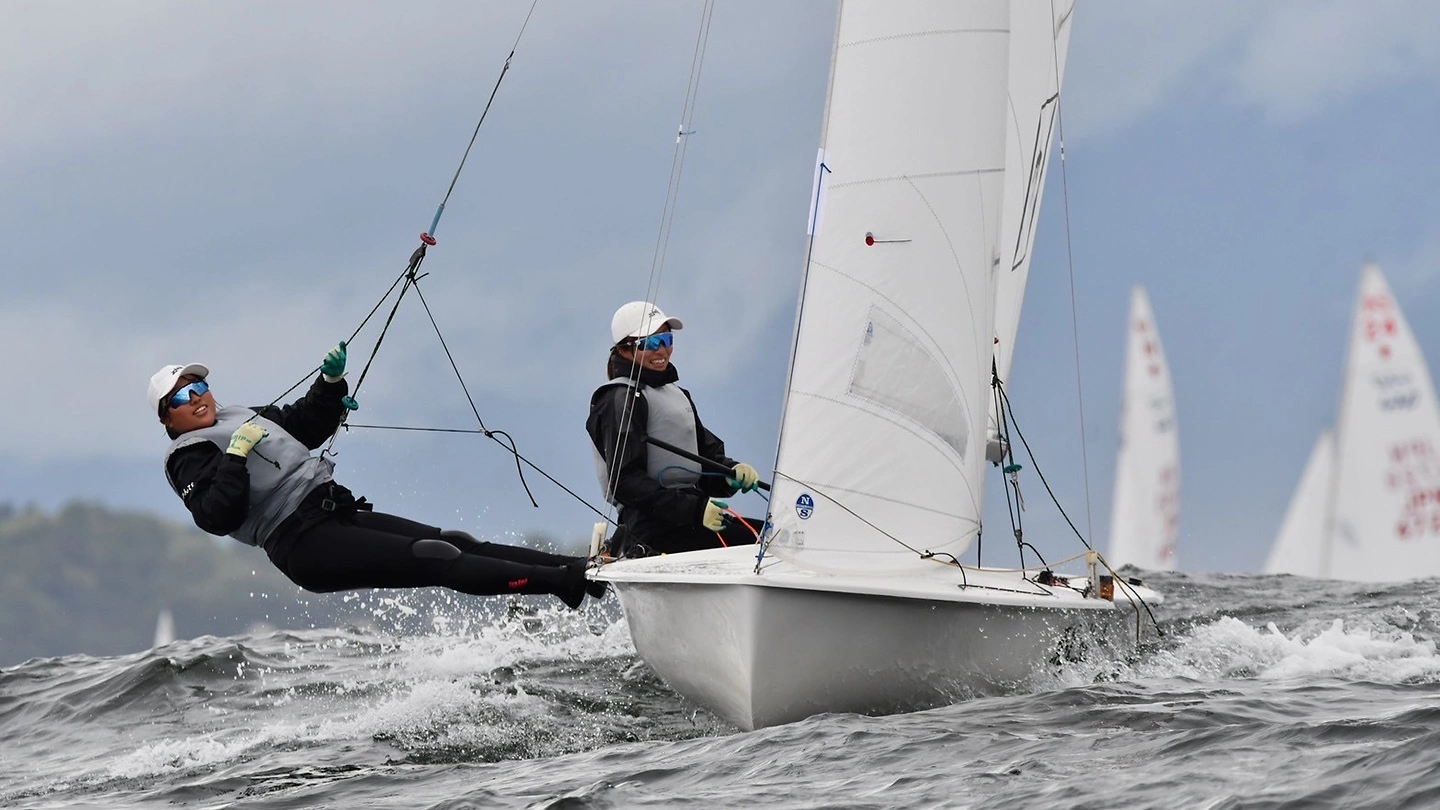
Competitive sailing
Competitive sailing is a sport that requires a high level of strategy and tactics, such as reading the constantly changing winds and tides, and deciding on the best course for the boat while maintaining speed. In a race, participating boats start at the same time, sail around buoys in the prescribed order a specific number of times, and compete to cross the finish line first. All-Japan student competitions include two classes — the Snipe class and the 470 class.
Snipe-class dinghies use two sails — a mainsail and a jib. Speed can be hard to come by, so sailors must utilize the wind skillfully while maneuvering strategically in relation to the other boats. Sailors lean over the edge to achieve balance while hooking their feet under straps attached to the boat.
In addition to a mainsail and a jib, 470-class dinghies also use a spinnaker sail. This gives the boat more speed than a Snipe-class dinghy, but also makes balancing more difficult. To prevent the boat from capsizing, "trapeze" wires are attached to the boat, allowing sailors to hang outside the vessel with their feet on the edge of the dinghy.
In both the Snipe and 470 classes, a skipper and a crew member operate the boat as a pair. The skipper is in charge of steering the boat, mainly operating the mainsail, while the crew member balances the boat and decides on the strategy and course based on the surrounding conditions.
About Science Tokyo Sailing Team
The Science Tokyo Sailing Team has a long history and is fully supported by the Kuramae Ushio Association, an alumni association boasting 400 members. Their motto is "developing full-fledged sailors, full-fledged members of society."
Related articles
- The Science Tokyo Sailing Team is supported by the Science Tokyo Fund.
Contact
- Remarks
- Science Tokyo Sailing Team
Email scitech.sailing@gmail.com